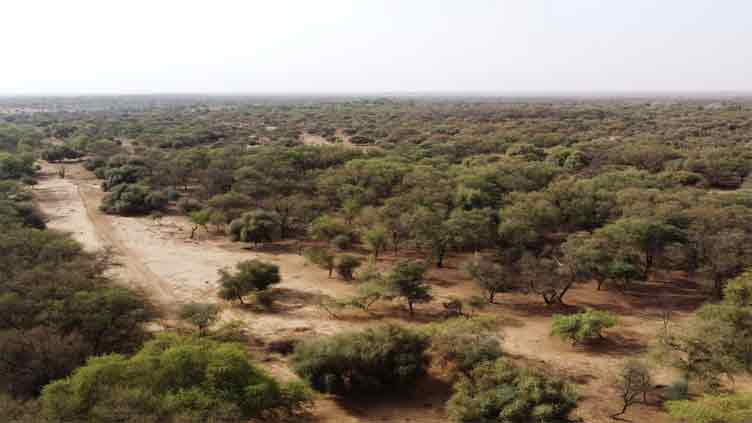Africa's Great Green Wall to miss 2030 goal

Business
Unlikely to meet a decade-end goal of reinstating 100m hectare of land
LONDON/DAKAR (Reuters) – Africa's Great Green Wall, which is meant to restore degraded landscapes and boost economies across the continent, is low on cash and unlikely to meet a 2030 completion goal, the president of the most recent UN summit on desertification told Reuters.
Launched in 2007, the project to reinstate 100 million hectares of land is only 30 per cent complete, said Alain Richard Donwahi, president of the 2022 UN summit held in the Ivory Coast, who has access to the analysis of how it is progressing.
The project aims to restore an 8,000-kilometre-long corridor from the Atlantic to the Red Sea and benefits some of the world's poorest countries at the edge of the Sahara Desert, including Ethiopia, Mali and Sudan.
"It is an understatement to stress that we are not in line with our common objective to complete by 2030," Donwahi said ahead of the World Day to Combat Desertification and Drought in Bonn on June 17, where he will seek renewed support for the landmark project.
"The project faces substantial challenges, primarily in terms of financing and implementation," said Donwahi, who serves as president of the UN summit on desertification until the next one in Riyadh, Saudi Arabia, in December.
With no centralised monitoring strategy, coordinating the work across the 11 African countries involved has been especially challenging, Donwahi said.
Meanwhile, some of those countries have been beset by humanitarian crises in recent years fuelled by military coups, war, or Islamist insurgencies.
The project was estimated to need at least $33 billion more funding to achieve its 2030 target, according to a progress review in 2020 by the UN Convention to Combat Desertification (UNCCD), which has provided occasional implementation reports.
International donors pledged some $19bn at a 2021 summit, but by March of last year, only $2.5bn had come through, with the rest due by 2025-end, according to the most recent funding update from the UNCCD.
Those pledged funds are also being spread across different projects that may be dedicated to international development, but not necessarily to the Great Green Wall, Donwahi said.
The difficulty keeping track of funding so far has been a key stumbling block, he added, welcoming the launch in June of an 'observatory' to monitor financing and progress.
Even so, it is unclear where the project will get the remaining billions needed to get back on track. Donwahi said more investment would be needed from international donors, the private sector and Green Wall countries themselves.
Donwahi noted some progress, including 3 million jobs created in the restoration of some 30 million hectares (74 million acres) of degraded land, roughly equivalent to the size of the Philippines.
With climate change escalating, though, the issue was increasingly a problem the wider world needs to face, said Donwahi, adding: "For too long, desertification and drought have been considered African problems".


